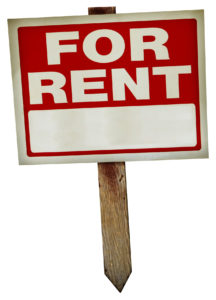 Short Term housing has become big business in wake of Airbnb and HomeAway. The Short Term rental companies have been in the news a lot, in almost every major city. Every major city and towns these days are trying to find a way to find the balance of allowing homeowners to rent their place out and not upset the housing applecart for people looking for long term housing. Some folks might wonder what is all the big fuss about?
Short Term housing has become big business in wake of Airbnb and HomeAway. The Short Term rental companies have been in the news a lot, in almost every major city. Every major city and towns these days are trying to find a way to find the balance of allowing homeowners to rent their place out and not upset the housing applecart for people looking for long term housing. Some folks might wonder what is all the big fuss about?
The Problems With Short Term Airbnb And HomeAway Services
The big issue with Airbnb, HomeAway is causing major cities and towns from being affordable to being unaffordable Due to a serious supply and demand. For a long time, the only options owners had been to rent their property out furnished or unfurnished. Some owners would list with a Real Estate company to find a tenant, and others would have more a DYI approach.
Disturbing Hotel Industry
One day Airbnb and HomeAway came along and owners could rent their place on there own. Often the owner was able to rent their property out for shorter periods of time for more money. It was a tool offered as a cheaper alternative to renting a conventional hotel which affected the hotel industry. This home sharing service was allowing private owners to make money, and avoid paying hotel taxes. This is a tax that a conventional hotel would charge the consumer.
Disturbing Renters who want to be long term Residents in a Community.
 HomeAway and Airbnb weren’t just affecting the hotel industry it was also affecting how much housing stock was available for long term renters. One would argue there were more options for the out of towner then for residents looking to call Massachusetts home.
HomeAway and Airbnb weren’t just affecting the hotel industry it was also affecting how much housing stock was available for long term renters. One would argue there were more options for the out of towner then for residents looking to call Massachusetts home.
Impact On Private homeowner
These short term rental services also caused other problems that a long-term rental addressed and wasn’t appreciated till these tools came available to owners. There is something to be said like knowing your neighbor. Whoever your long-term renter is you know they didn’t just move in. They had reference check, credit check and you can speak to those folks who rented to them prior If your neighbor is moving into a condo they must know what condo rules are and abide by them. What about the weekend renter? Do you think the weekend renter references were checked and can be held accountable like a long term tenant? Most likely the answer is no.
Corporations are often getting into the business of buying real estate and renting it out on Airbnb and HomeAway. If you were living next to that unit it will be harder for you to address problems that come up. The actual owner may be a company, not a person making it a game of catching me if you can. Very Frustrating wouldn’t you say?
Solution To The Problem At Hand
So cities and towns eventually realized they needed to address this matter, and eventually, it reached the Govern Bakers Desk. The law will take effect July 1st, 2019. This law doesn’t prohibit short-term rentals but does establish both a tax on such uses as well as regulate it.
What Defines a Short Term Rental?
A Short term rental is any property where at least one room in a dwelling is rented to an occupant for less than thirty-one days consecutively in advance for housing accommodations. It applies to all forms of housing regardless if the owner lives there or doesn’t live on premise. If you lease a property out longer then 1 month then you are exempted.
Example of properties exempted from the law
The landlord has a furnished home or unit and offered to rent it out for 2 months or longer then the property is exempted. If you have an apartment that you are renting out unfurnished or furnished for one year that is also exempted.
What is required if you plan to rent your place out for less then 31 days
1) Registration: Any owner who is operating a short-term rental must register their property and obtain a certificate or registration prior to offering your home for use. There will most likely be fees that will be established by the executive office of housing and economic development. Local municipalities are also authorized to create registrations system
2) Taxes: If the property is used for short term rentals more then 14 days per the calendar year the tax provision of the statue take effect. The statue imposes the State tax of 5.7%, and local municipalities may impose an additional tax of 6% or 6.5% in Boston.
If the property is managed then the property would be subjected to an additional 3% fee for owners who own in two or more in a town. If your property is on the Cape and Islands they will be subject to a 2.75% fund for the Cape Cod and Island water protection fund.
Often times charges and fees an owner will pass onto the tenant to pay to rent the property, and the owner can do that. If an owner decides to pass on the charge the owner must list and disclose charge as separate. The owner will be personally responsible to remit the tax to the proper authorities. A property management company or operator who works on behalf of the owner would be responsible for collecting the charges and would be responsible for both register and remit the taxes on behalf of the owner. They are also responsible to ensure that the owner has complied with the requirement of the status.
3) Fire Safety: Anyone operating a short term rental is required to post a notice in the unit confirming the location of any fire extinguisher, gas shut off valve, fire exits and fire alarms in the unit and the building. Local Municipalities may also require additional safety inspections and assess their own fees.
4) Insurance: Any person operating a short term rental is required to maintain liability insurance in an amount not less than $1,000,000 covering bodily injury and property damage unless the operator uses a rental platform which offers such coverage
When does it go into effect?
This law goes into effect July 1st, 2019, and this new law doesn’t mean you can’t rent your home out short term, but if you do decide to rent your home out short term vs. renting it out for a longer term then it will cost not only the owner but in effect the consumer. This law might not only help our affordable housing shortage but also at the same time put both home sharing and hotels on a more even playing field.
If you are a landlord and have questions about this new change in MA or are thinking about buying an investment property and want to make sure you’re doing things the right way please contact me. I have done real estate for almost 14 years and got my start in short term furnished rentals so understand the process of renting very well. This new change is long overdue for Boston. Once we tighten up future developments it will limit how many buyers are investors. This change should improve buyers and renters who want to call Boston home long term, and maybe people can stop spending more than 1/3 of there income on housing. There is something seriously wrong with the current picture. There is a way to make landlords and renters both winners. Contact me if you want more information about this new change in the rental market.



Leave a Reply